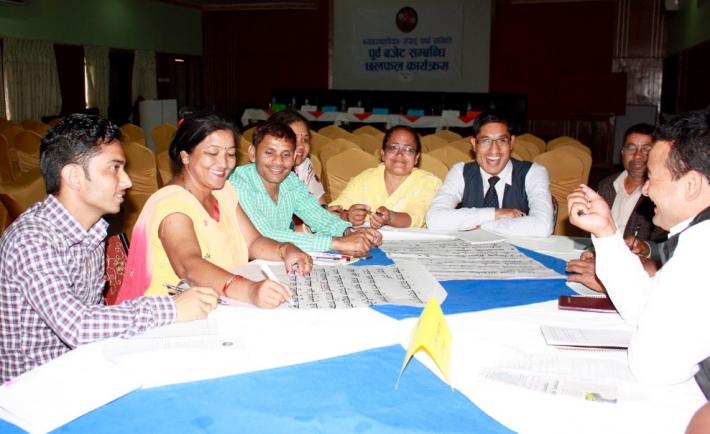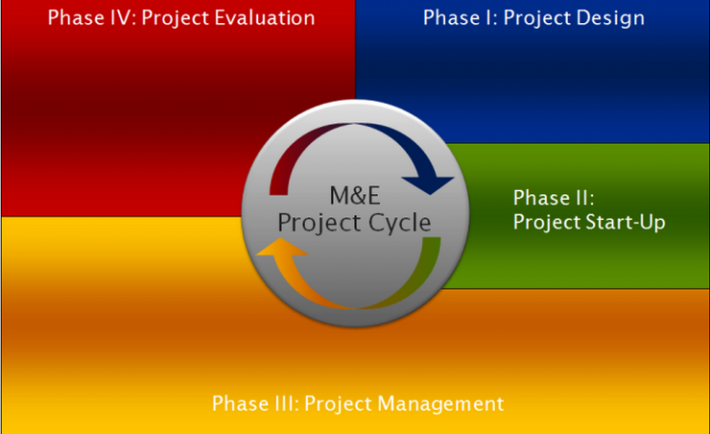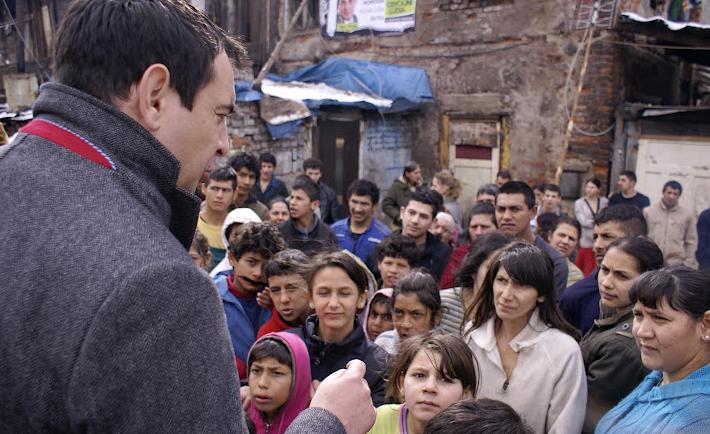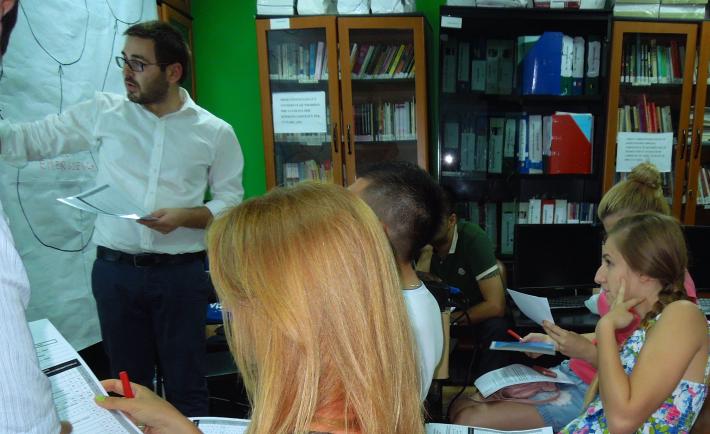For the first time in Nepal’s history, pre-budget discussions took place outside of the nation’s capital city of Kathmandu. Since 2014, Nepal's Legislature Parliament Finance Committee has worked with NDI to increase citizen participation, especially in the area of citizen input in the budget process through public consultations. NDI offered its support to the Finance Committee by organizing Committee-led pre-budget discussions throughout 2015 and 2016 to reach out to citizens in the hill, mountain and Tarai regions. The discussions fostered dialogue between Nepali citizens and the parliament, thus opening the decision-making processes to more people. Consultations equipped the Finance Committee with the information and confidence it needed to make improving the overall budget process a priority prior to the finalization of Nepal's new constitution.
Nepal Parliament Finance Committee Enhances Voice and Input of Citizens through Pre-Budget Discussions
Nepal Civil Society Monitors Earthquake Reconstruction Process
Ordinary citizens and civic organizations become tremendously more active in the community immediately after a tragedy hits their community. This was my experience with my community in Kosovo in the post-war reconstruction in the late 90’s and this has certainly been the case in Nepal after two mega earthquakes last year took close to 9,000 lives, injured more than 22,000 people and destroyed more than 600,000 homes. Nepalis in solidarity with their fellow citizens flocked to help with relief materials, building shelters and reinforcing other people’s homes. The spirit of the community was very high.
Venezuela, Burma, Burkina Faso: Connect the Democratic Dots…

A Burmese anti-government protest in front of the Petronas Twin Towers. Photo credit: Off2riorob CC BY
In the four weeks between November 8 and December 6, 2015, the peoples of Myanmar (Burma), Burkina Faso and Venezuela delivered surprises: resounding defeats to military rule, strongman domination and populist authoritarianism. These bright spots are the consequence of perseverance by democratic activists in the face of repression. They also highlight the importance of elections as a peaceful means for people to bring about change.
Financing Gender Equity: “Money Matters” in Addis Ababa

NDI’s Layla Moughari helps members of parliament log into a questionnaire about their role in domestic resource mobilization. (Photo credit: Aretha Francis, Women in Parliaments Global Forum)
NDI co-organized a panel on July 13, on the role of parliamentarians in using “domestic resource mobilization” to advance gender equality as part of the Post-2015 Development Agenda. Domestic resource mobilization refers to the use of a country’s public and private funds -- including tax revenues -- to finance development goals. Globally, significant domestic resources that could be spent to support gender equality and empowerment are lost every year through corruption, corporate tax evasion and inefficient tax collection systems.
Job Opportunity: Monitoring and Evaluation Program Manager
NDI is seeking a Program Manager to work as part of its Monitoring, Evaluation & Learning (MEL) team in supporting the Institute’s capacity to monitor, evaluate and learn from its programs.
Partnering with Roma Activists to Evaluate Political Mainstreaming in Slovakia
In two days the world will celebrate International Roma Day, which highlights the issues facing Romani people around the world.
Over the last decade, with funding from the National Endowment for Democracy (NED), NDI has supported Roma political candidates, civic activists and elected officials as they seek to increase their participation in civic and political life.
Beyond the ballot box, election monitors work to improve health care in Albania
New democracies often get stuck when fair elections, active civic groups, independent media, party competition and constitutional checks on power still don’t produce better government. Instead, corruption, political conflict and other problems can fester and upend the notion that democracy does in fact make life better.
This is the situation in Albania, which ditched communism in 1990. While making huge strides in the 25 years since, Albania nonetheless is mired in bad politics that leaves people wondering if its new democratic order can make government function as it should.
There’s No Sustainable Development Without Good Governance
With the Millennium Development Goals (MDGs) set to expire this year, attention is turning to a new priority - Sustainable Development Goals (SDG), which are being negotiated now and are scheduled to be adopted in late September.
As the world contemplates this new agenda, good governance needs to be a priority.






.jpg)